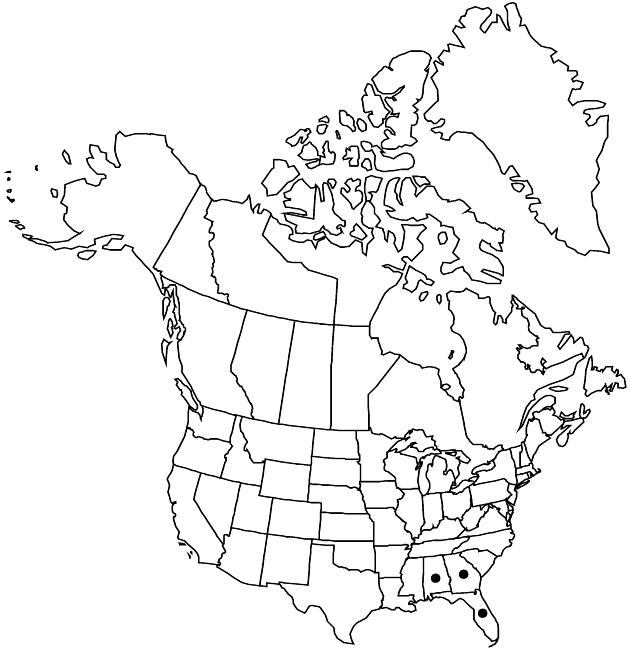Arnoglossum sulcatum
Phytologia 28: 295. 1974.
Plants 70–140 cm. Stems strongly ridged (glabrous or sparsely pubescent). Basal leaves: (petioles 10–45 cm) blades (with 3 main veins from bases) broadly ovate or elliptic, 12–15(–20) cm (bases cuneate, decurrent onto petioles), margins entire, sinuate, crenulate, or denticulate. Cauline leaves: proximal petiolate or sessile (mid stem sessile, bases broadly cuneate), blades narrowly ovate, margins entire, sinuate, crenulate, or denticulate; distal petiolate or sessile, smaller. Involucres (8–)9.5–10(–12) mm. Phyllaries (pale green) ovate, midvein wings uniform or highest at apices. Corollas white or greenish, sometimes tinged with purple, 7–8(–9.5) mm. Cypselae fusiform or clavate, 4 mm (dark brown, 6–8-ribbed); pappi 5–7 mm. 2n = 50.
Phenology: Flowering Sep–Nov.
Habitat: Shaded, wet areas of hillside seepages, thickets, and swamps
Elevation: 0–100 m
Distribution

Ala., Fla., Ga.
Discussion
Of conservation concern.
Arnoglossum sulcatum occurs in the Florida panhandle and adjacent Georgia and Alabama.
Selected References
None.